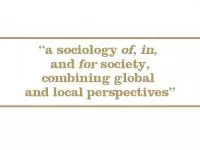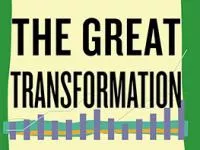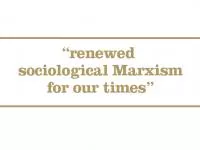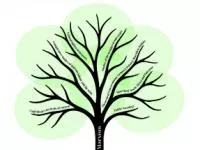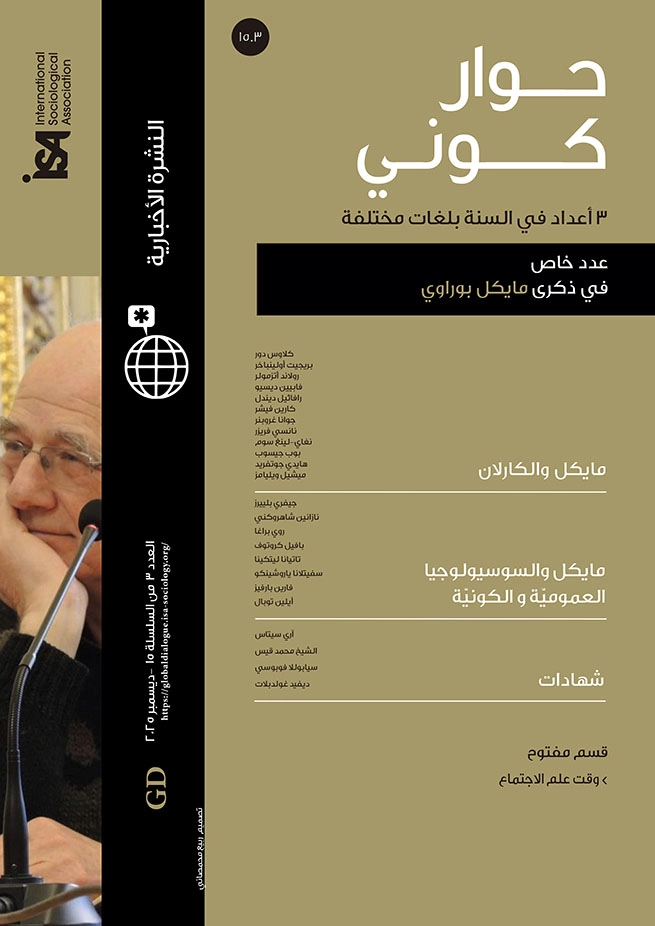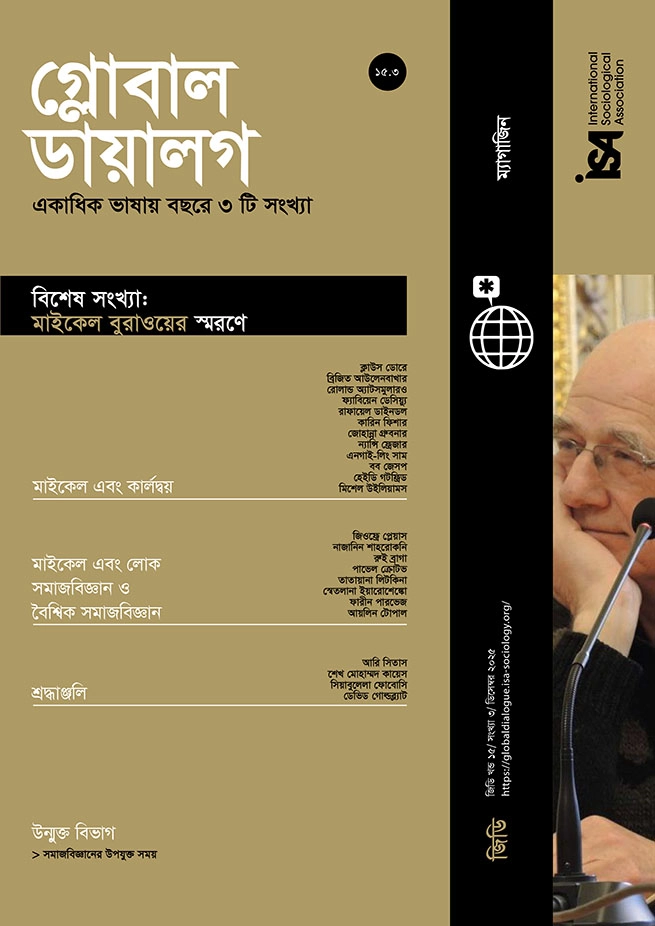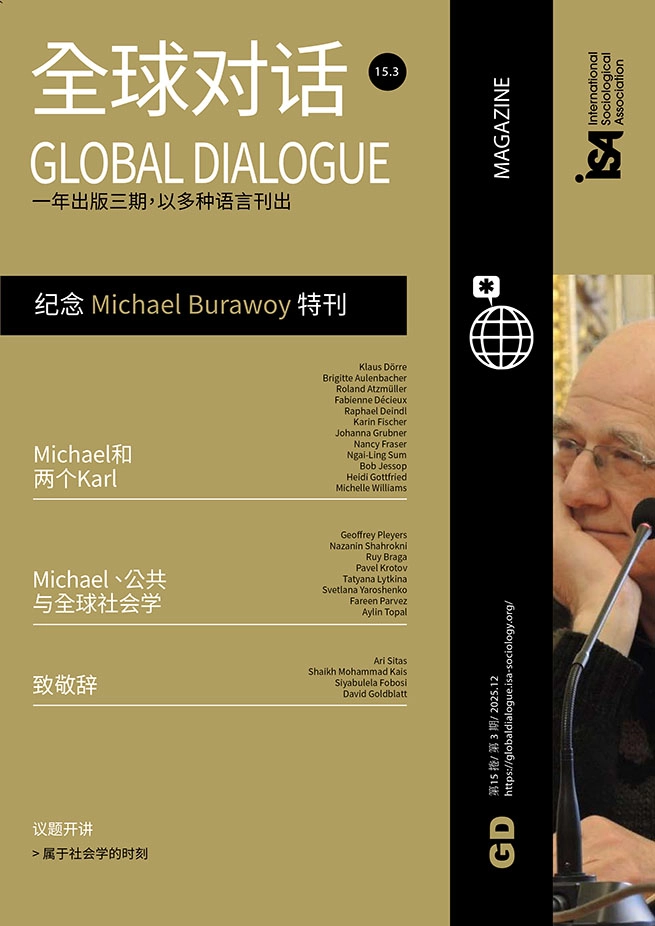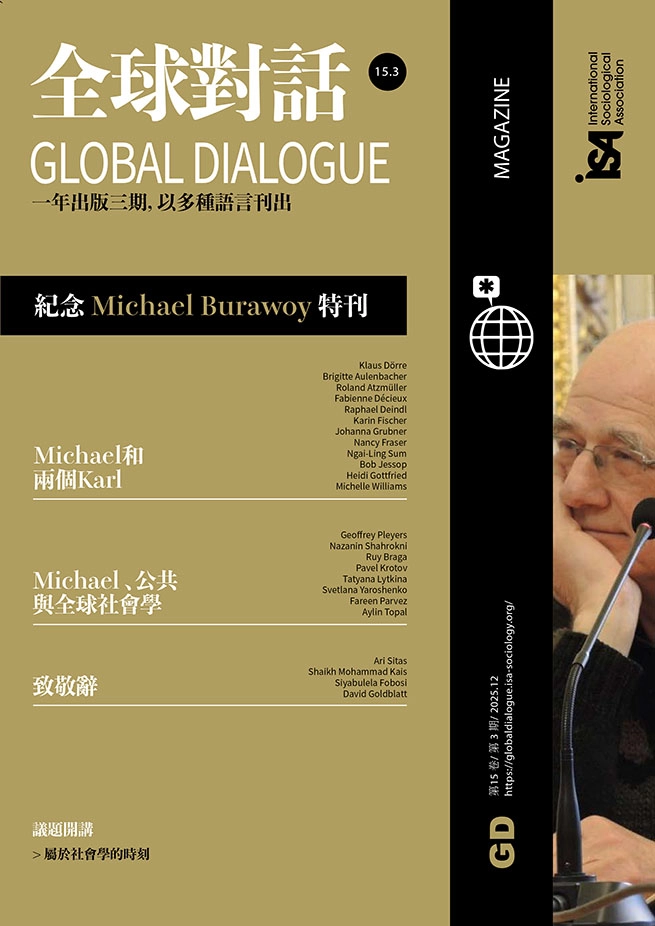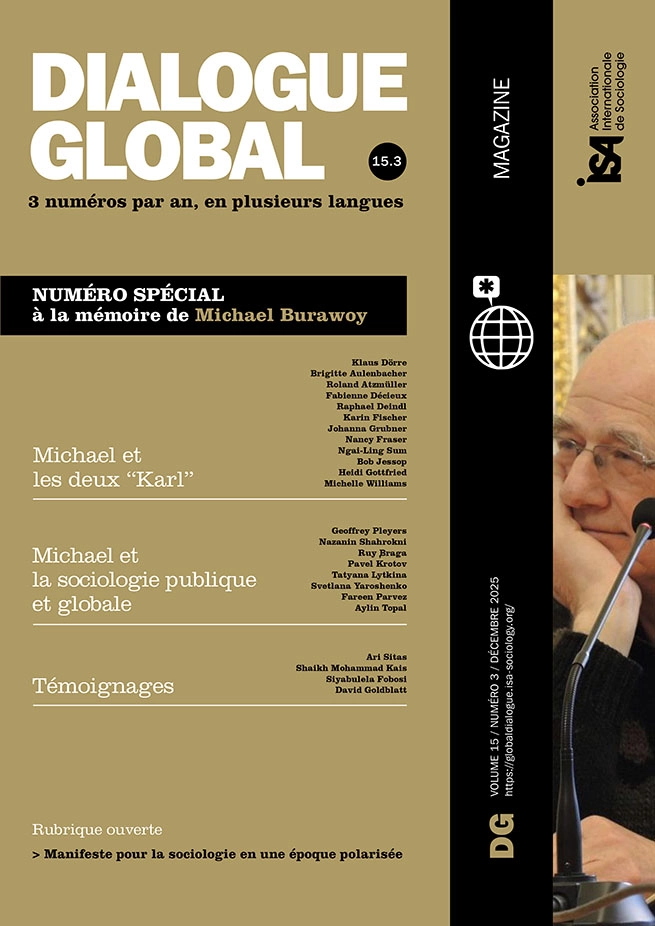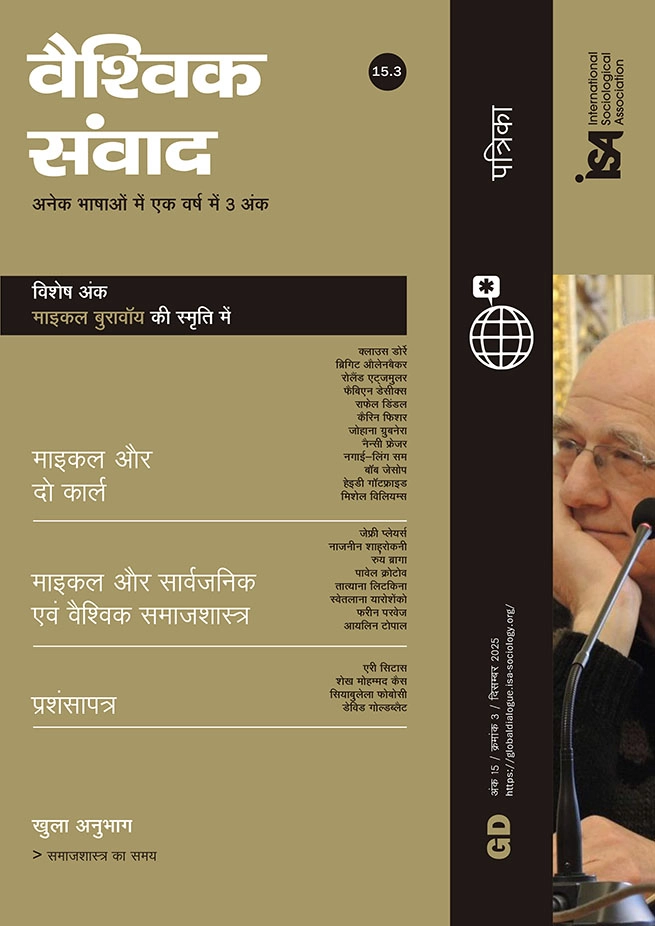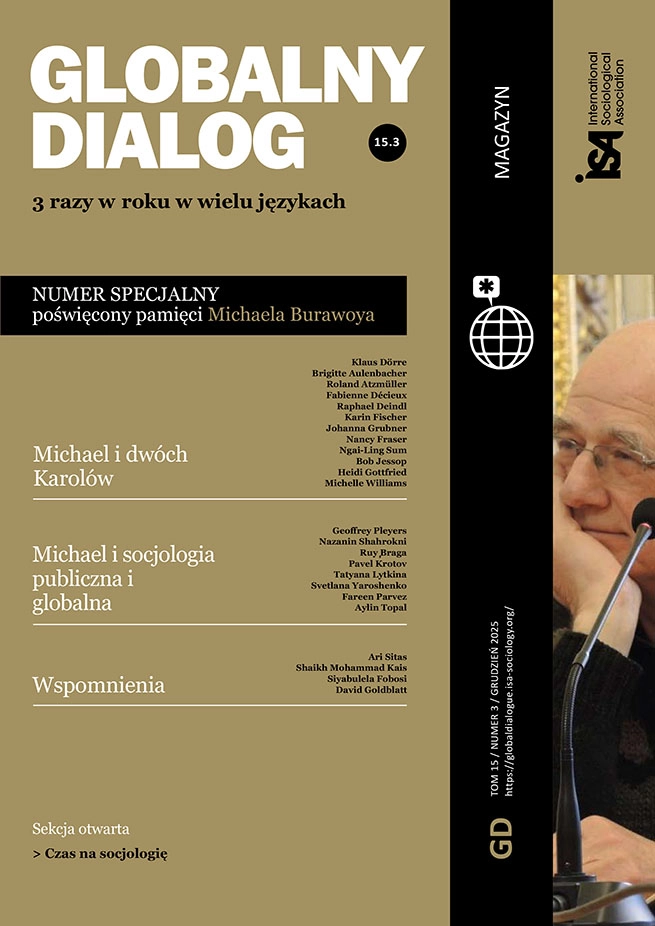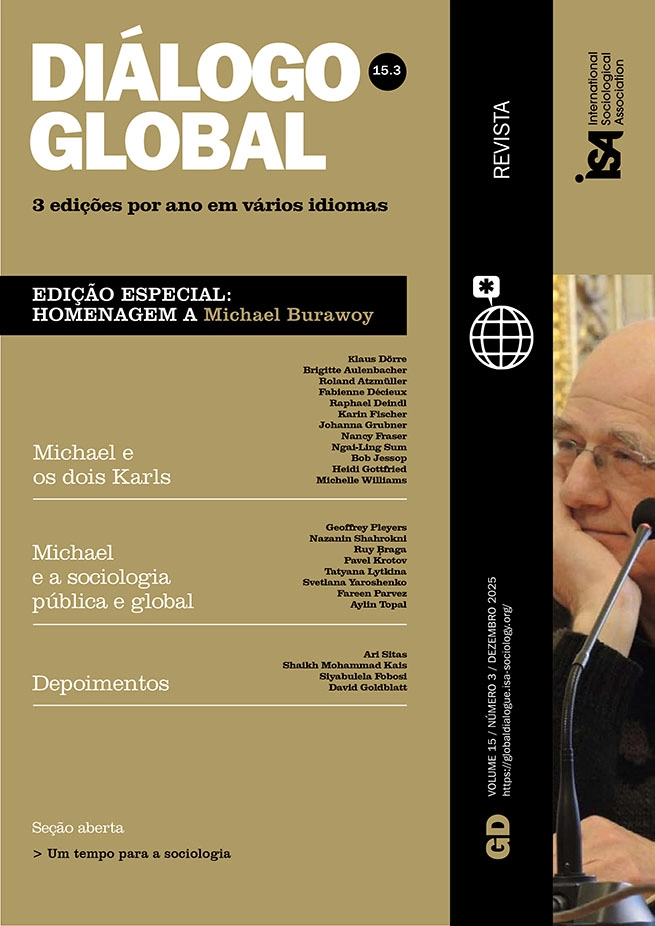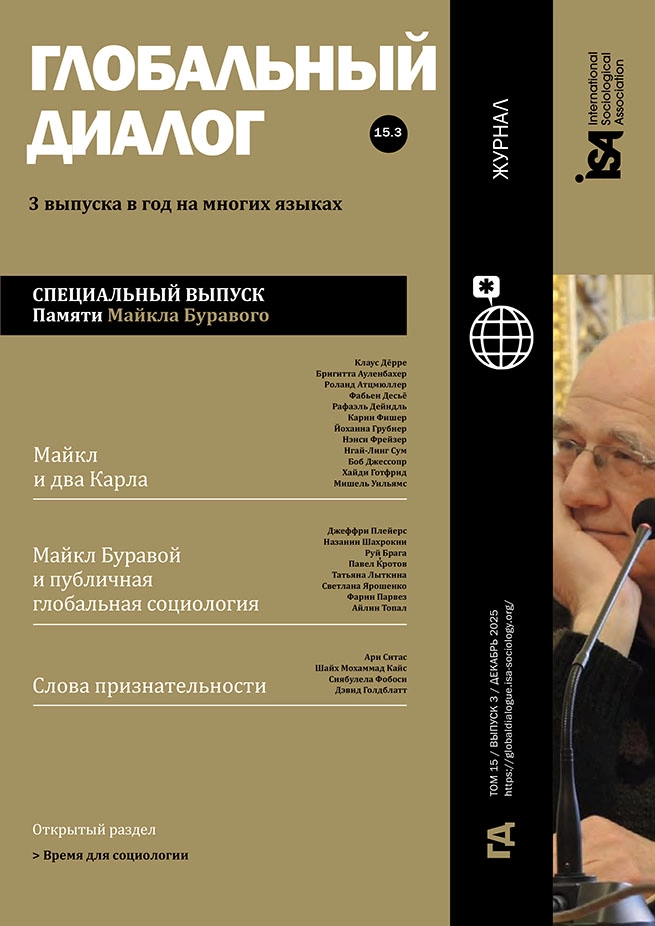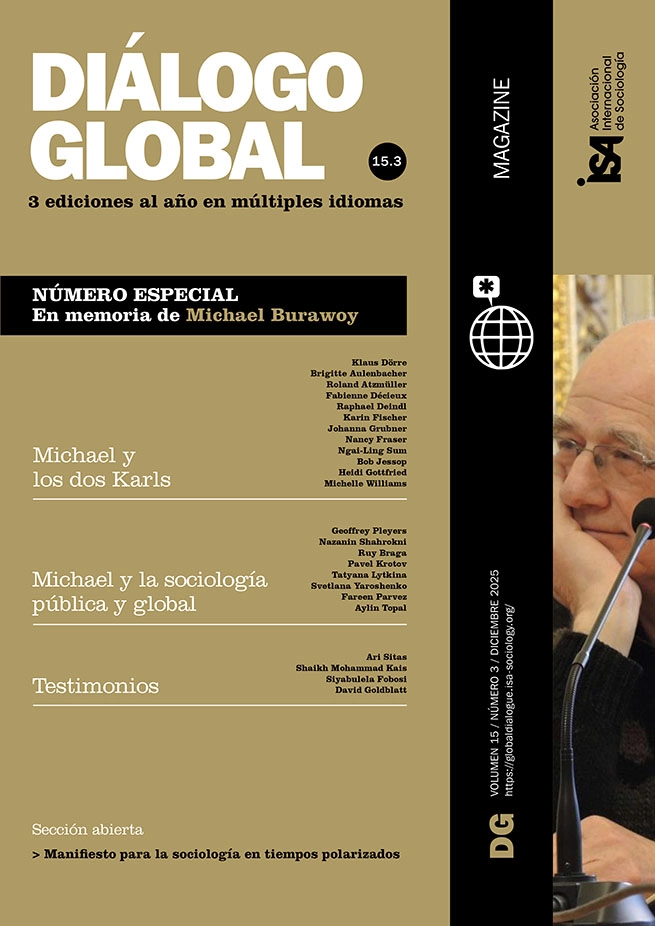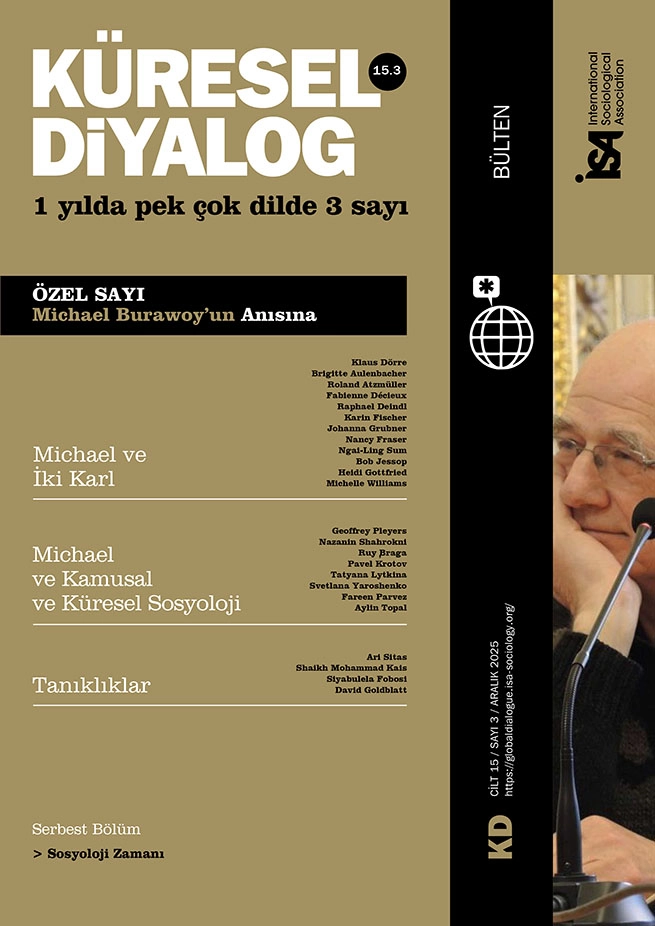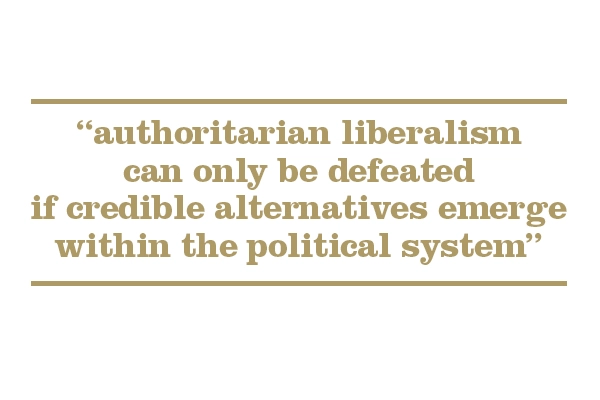Karl Marx and Karl Polanyi are key sources of inspiration for the sociological Marxism developed by Michael Burawoy together with his friend Erik Olin Wright.
Marxism: roots, trunk, branches
Burawoy understands Marxism as a living tradition; one rooted in the historical materialism, humanism and specific understanding of theory and practice of the young Marx. From these roots grew the great “trunk” of Marxism – the critique of political economy elaborated in Capital – from which, in turn, many branches have sprouted: German Marxism prior to World War I, Soviet Marxism, which solidified into dogma and, as reactions to these, Western and Third World Marxism. Some branches wither, others bloom; each corresponds to the three waves of marketization (the first in the nineteenth century, the second from 1918 on, and the third beginning in the 1970s) that Burawoy outlines in his critical engagement with Polanyi. A reading of Polanyi alongside Marx is central to understanding a sociological Marxism that reflects on the third wave.
Marxism after Polanyi
Burawoy breaks with the conventional Marxist idea that the sphere of production is where opposition to capitalism is to be sought. For Burawoy, production is precisely where consent to capitalism is generated. Given the availability of a global “surplus” labor population, semi-protected employment appears to the worker not as exploitation but as a coveted privilege. Subjectively, it is not exploitation, which is still indispensable for capital accumulation, but rather the experience of the “Satanic mill” of the market (Polanyi) that shapes the manifold of human existences.
Sociological Marxism
To this rethinking of traditional Marxism, Burawoy adds further key ideas. Firstly, sociological Marxism needs to see the commodification of nature as the defining feature of the third wave of marketization. Burawoy thus calls for markets to be constrained and the means of production to be socialized, which could mean expanding but also restricting basic freedoms. Secondly, third-wave Marxism will focus on democratic civil society beyond the market and the state. Markets and states will not disappear, but they must be placed under the control of democratic civil societies. Thirdly, this Marxism conceives of civil society as both global and national, since a civil society that defends humanity against looming ecological catastrophes must ultimately have a global dimension. Fourthly, such a Marxism can draw on the breadth of sociological knowledge contained in widely accepted works of market critique. Fifthly, Burawoy keeps the idea of a socialist society alive by seeking points of leverage for a molecular transformation by civil society, that is, the hope for real utopias. Since he discovers embryonic forms of lived alternatives worldwide, sixthly, he develops sociological Marxism into a global Marxism which, seventhly, methodologically dispenses with theoretical certainties and practical imperatives in order to test new equilibria between theory and practice.
Authoritarian liberalism
With his idea of a sociologically grounded socialism, Burawoy has left us a legacy that we must take up if we are to advance the chance of a future worth living. Three tasks seem central to me in this regard. One is that we must analyze the new social bifurcations emerging in response to the commodification of nature and knowledge, as well as the finance-driven Landnahme of labor and money.
The third wave of marketization is coming to an end, with counter-movements to market expansion increasingly emerging from authoritarian states and governments. Meanwhile, democratic civil society, in all its diversity and independence, is increasingly under threat. We are beginning to experience a fourth wave, which – following Hermann Heller, a Marxist theorist of the second wave – can be termed “authoritarian liberalism.” This term identifies an authoritarian state which completely relinquishes its authority when it comes to the economy and recognizes only the freedom of the market. Today we seem to be experiencing just such a reaction to conflict-ridden socioecological transformation: the economy is being freed from bureaucratic shackles, while climate protection, if still pursued at all, is being left to market forces and technological innovation. Neo-mercantilist trade policies are ending the era of market-driven globalization, elite deals are replacing transnational diplomacy, oligarchic rule is hollowing out democracy from within, and a fundamentalist culture war is liquidating basic human rights. Class privileges are being entrenched, sexism and racism are mutating into state ideology, and universities, to which Burawoy assigned a central role in the fight against commodification, are subject to state tyranny. This new wave of commercialization is centered on social relations. Since there is supposedly no longer enough for everyone, only the most productive inhabitants of the earth are to have a right to life; and this in prosperity zones sealed off from the disaster-prone rest of the world by all available means.
Return of the class question
In a world marked by wars and disasters, another of the vital tasks Burawoy has left us stems from the idea that it is not enough to seek alternatives within niches of the old system. While such efforts to build socialism from below are still important, it is also clear that the “authoritarian liberalism” of the new oligarchs can only be defeated if credible alternatives capable of winning majority support emerge within the whole political system. It would therefore be negligent to abandon the struggle for state power. In order to counteract the ongoing destruction of reason, the exploitation and domination that hide behind market logic must once again be exposed to public scrutiny. Erik Olin Wright’s reflections on an integrative class theory which connects Marx not only with Polanyi, but also with Weber and Bourdieu, and not least with the intellectual voices of “black” and feminist Marxism, seem to me to be central to this undertaking.
Global Marxism
Regardless of how one feels about these proposals, the development of a sociological Marxism with a global self-image remains an aspiration yet to be realized and the third task I see as central to Burawoy’s legacy. With Michael’s shocking death, we are witnessing the gradual passing of a generation of sociologists shaped both academically and politically by the (post-)1968 movements. New generations are growing up of course and it is a worthy task for sociologists of my age to support and encourage all those using Michael’s idea of sociological Marxism as a basis for reflection. We can support the younger generation by listening to them; by criticizing the new central committees for eternal truths as well as the idea of a Marxist “supermarket” where insights are picked and chosen according to the Zeitgeist, without engaging with the everyday social grievances of the oppressed. In short, we should urgently seek platforms and formats that enable an exchange that would realize what Michael envisioned as a performative idea: a global Marxism that indicates the way towards overcoming capitalism, its wars and catastrophes.
The original article was translated from German to English by Adrian Wilding. Those interested in these reflections can also consult the results of the project Emancipation through Socialism, run by the author together with students and young sociologists, at https://emasoc.de/sozialismus-von-unten-emanzipatorische-ansaetze/.
Klaus Dörre, Emeritus Professor, University of Jena, Germany <klaus.doerre@uni-jena.de>
